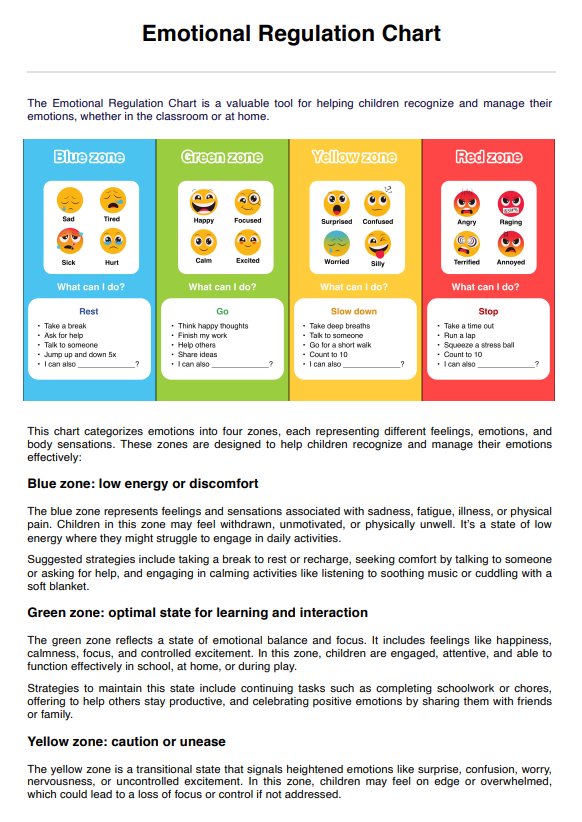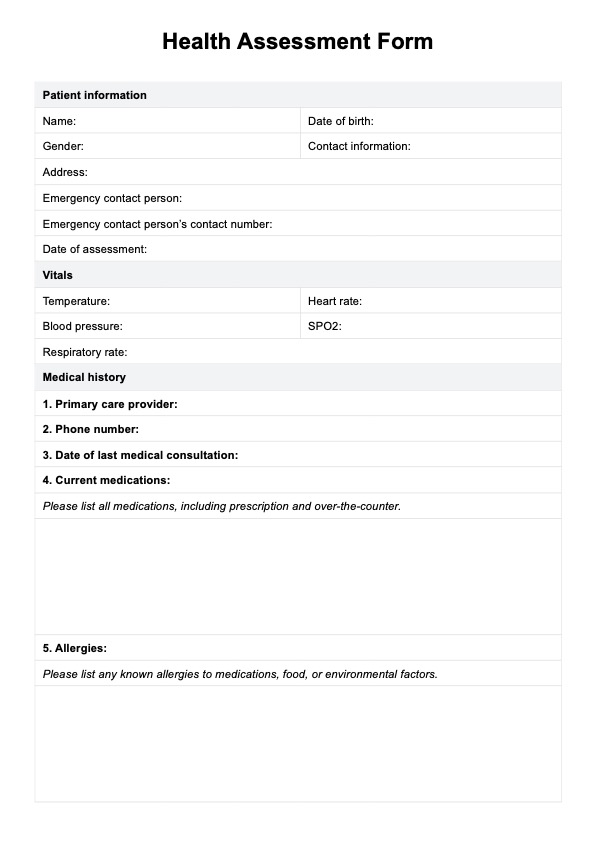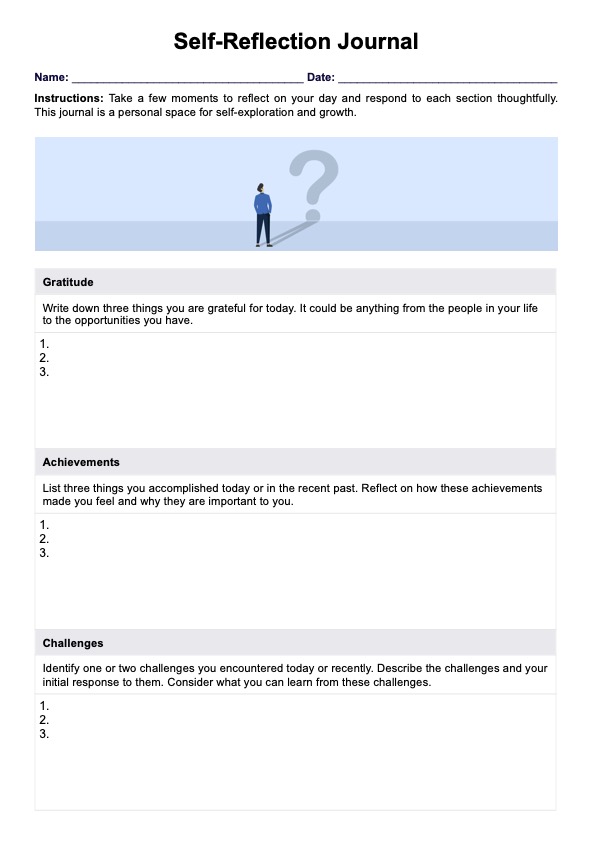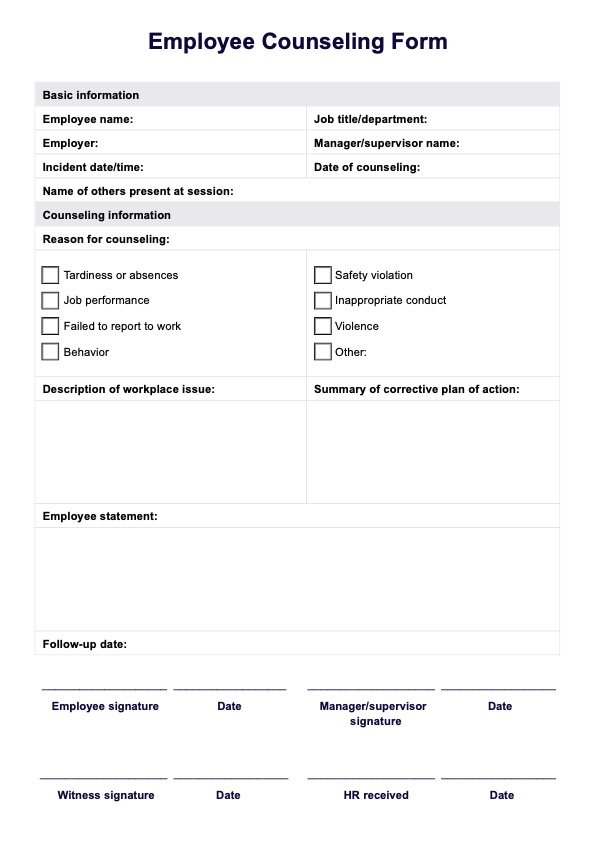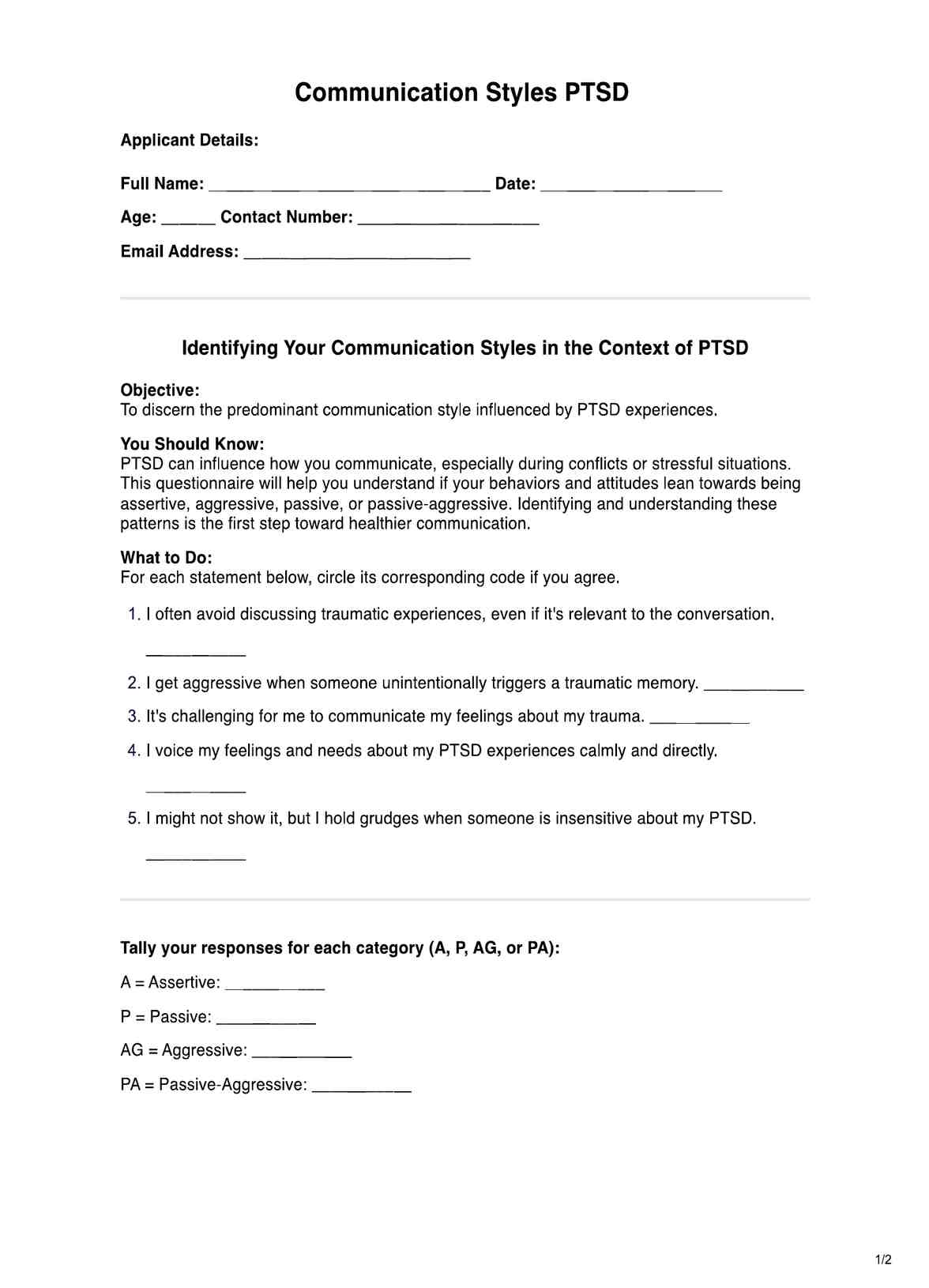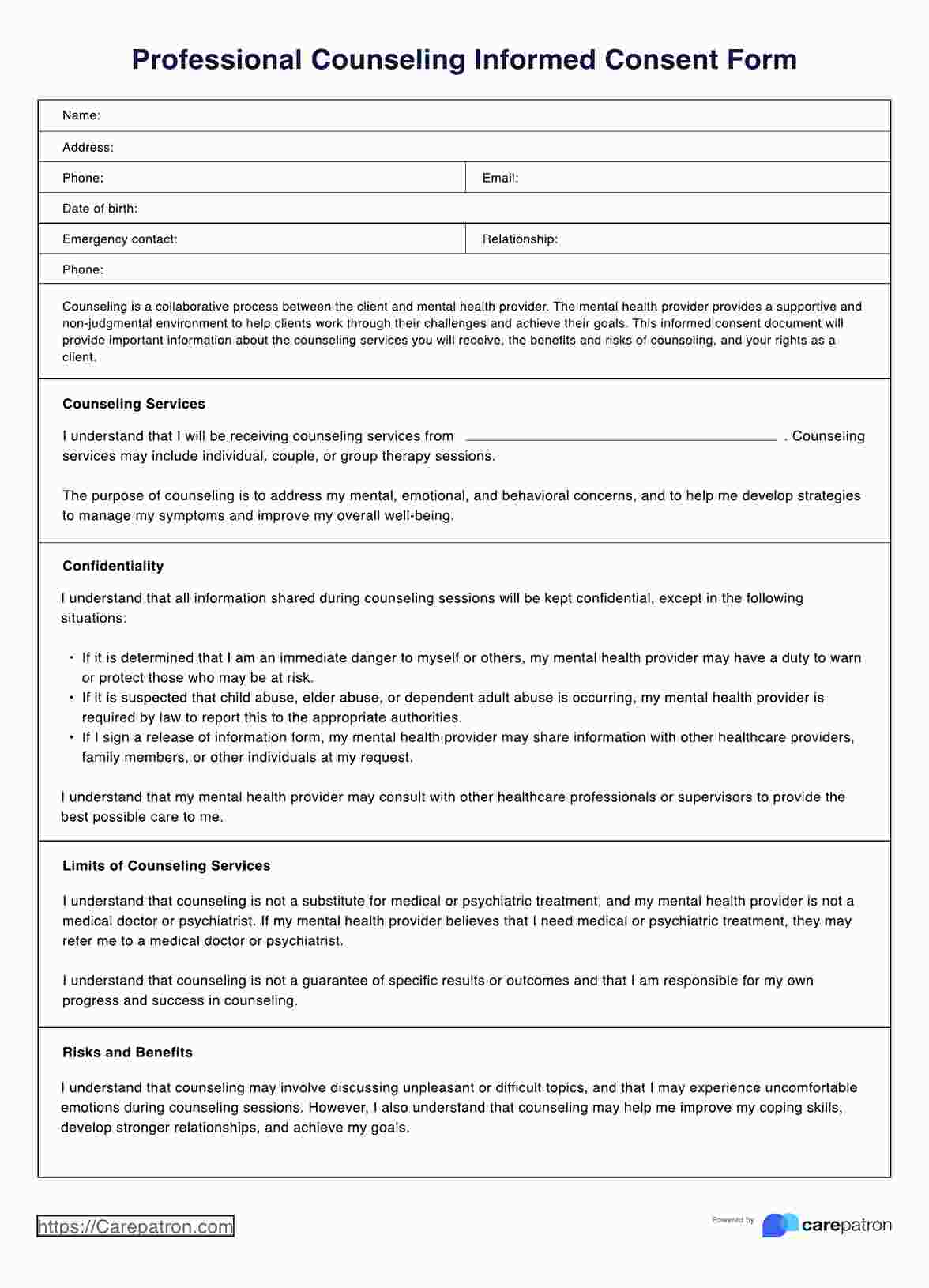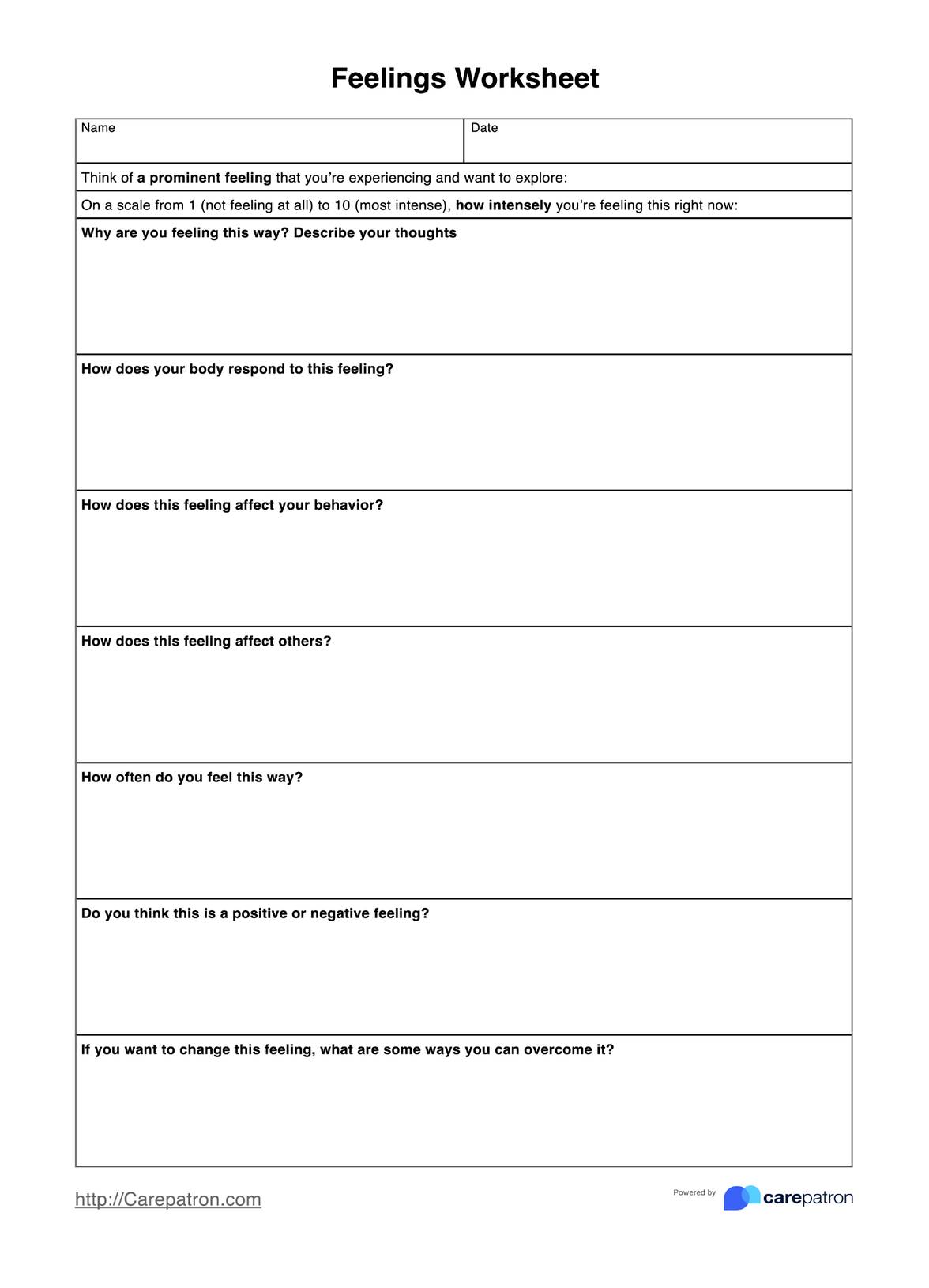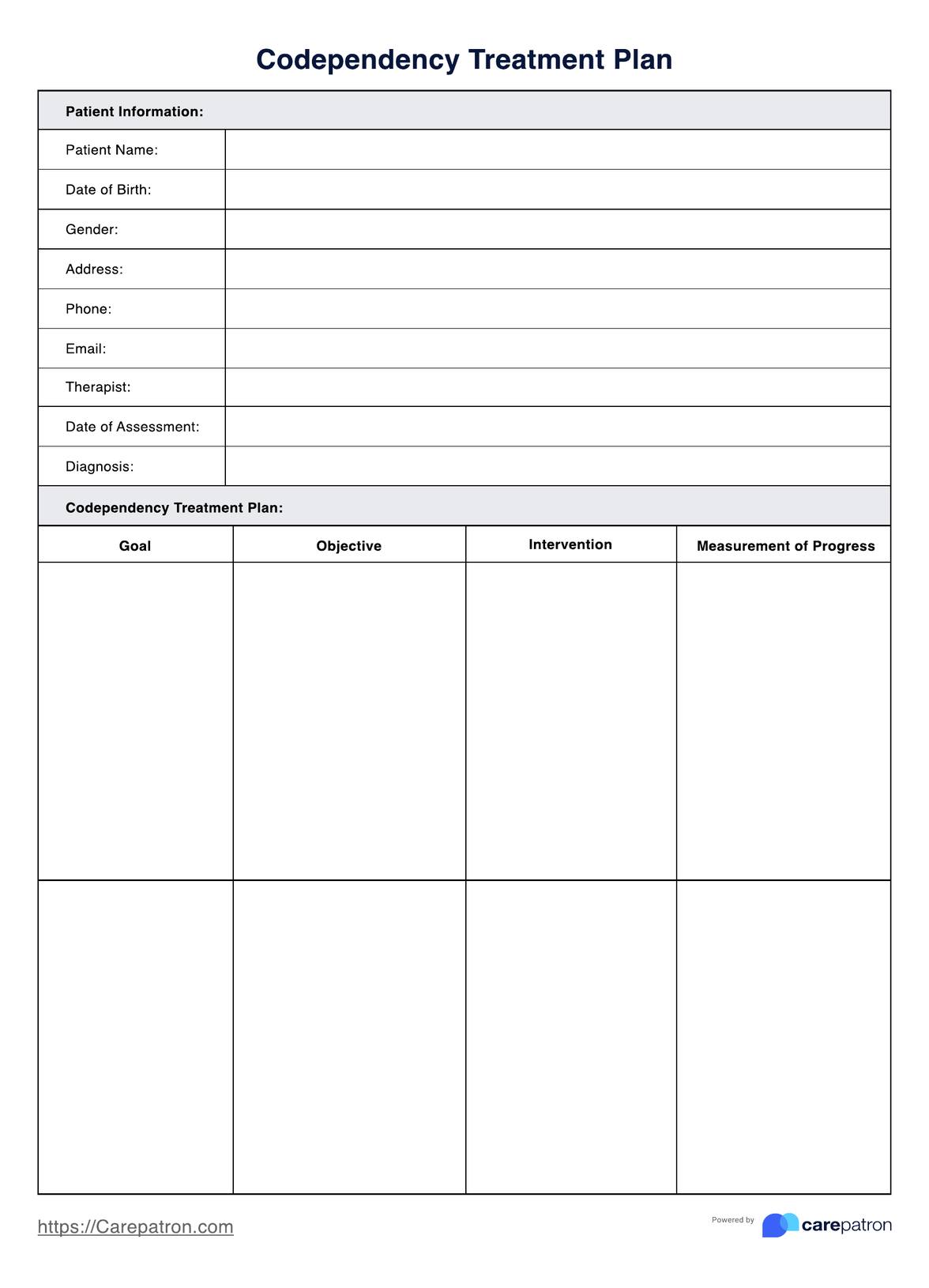Fearful Thoughts of the Future During Recovery CBT Worksheet
Assist your patient in identifying past and future thoughts affecting their present lives with the Fearful Thoughts of the Future During Recovery CBT Worksheet.


What is Cognitive Behavioral Therapy?
CBT, or , is a form of evidence-based psychotherapy widely recognized for focusing on the connection between a person�??s behavior, thoughts, and feelings. It can be used as a standalone treatment or added to other therapeutic approaches to treat various mental health conditions. Some of these conditions are anxiety, depression, eating disorders, substance abuse issues, phobias, and post-traumatic stress disorder (PTSD).
The root idea behind CBT is that thoughts influence one�??s actions and emotions. With this, the goal is to help individuals identify and change negative thought patterns contributing to their distress and develop realistic, positive thoughts for better adaptive behaviors and healthier emotional responses. To be more specific, during CBT sessions, the referring physician and the client will collaborate to do the following:
- Goal-set
- Identify automatic negative thoughts (ANTs)
- Examine evidence of the ANTs
- Develop alternative perspectives
- Practice new coping strategies
By the end of their treatment plan utilizing CBT, the individual will be more capable of being more aware of their thinking pattern and use their equipped skills to change the negative thoughts they have to have healthier mental well-being.
Fearful Thoughts of the Future During Recovery CBT Worksheet Template
Fearful Thoughts of the Future During Recovery CBT Worksheet Example
How to use the Fearful Thoughts of the Future During Recovery CBT Worksheet:
Step One. Access and Download the Template
To access and download a printable digital version of the �??Fearful Thoughts of the Future During Recovery CBT Worksheet,�?� you may do either of the following:
- Click the �??Download Template�?� or �??Use Template�?� button
- Search �??Fearful Thoughts of the Future During Recovery CBT Worksheet�?� in Carepatron�??s template library�??s search bar on the website or app.
Step Two. Complete the Template
Once you�??ve downloaded a copy of the template, you may give it to your client to answer any point you deem best during your session.
While they answer the worksheet, you can explain or clarify certain sections and even use our sample template as a visual aid. Don�??t forget to assure your clients that they can take it slow and answer it in any manner - bullet points, phrases, or sentences - they�??re comfortable with. You may also participate in the brainstorming session for answers, especially in the final section of the worksheet.
Step Three. Discuss the Template
As soon as your client is finished, you may discuss the template to understand their thought patterns better and provide ways to apply the coping strategies you�??ve brainstormed immediately.
Step Four. Securely Store the Template
Once the session ends, you must store the template in a secure physical location or on Carepatron, a HIPAA-compliant EHR, where only relevant parties can access the document when needed.
When would you use this Fearful Thoughts of the Future During Recovery CBT Worksheet?
Licensed mental health professionals with CBT certification and experience like psychiatrists, psychologists, and therapists, can use the �??Fearful Thoughts of the Future During Recovery CBT Worksheet�?� when the client:
- Is at the verge of relapse, or isn�??t progressing well due to the past or a fear of the future
- Has low self-confidence because of negative thoughts
- Often beat themselves up about the history to the point that it may affect their future or recovery progress
- Usually has a fear of the future due to negative thoughts
- Need techniques that will stop the thoughts from forming or controlling/distracting/influencing them further
Aside from the conditions or circumstances mentioned above, if any of your clients in their recovery journey may benefit from answering the worksheet, you may give them a copy to complete.
What are the benefits of using this Fearful Thoughts of the Future During Recovery CBT Worksheet?
Improved Self-Awareness
To complete the "Fearful Thoughts of the Future During Recovery CVT Worksheet," the patient must be self-aware of their negative thoughts and how they affect them. This exercise will hone the client's self-awareness skills, especially over time.
Insight into Patient
With the worksheet, you'll not only be familiar with the client's thought patterns but also pinpoint which of the thoughts are impeding their recovery progress. In addition, the referring physician can also gain insight into whether or not the coping strategies are effective.
Individualized Treatment Plan
The client and the referring physician will be asked to develop coping strategies on the worksheet. With the information on the worksheet, the referring physician can better incorporate effective coping strategies in the treatment plan.
Digitally Accessible
Our free �??Fearful Thoughts of the Future During Recovery CBT Worksheet�?� is printable and digitally accessible, editable, and fillable on a PDF editor or on the Carepatron software/app by relevant parties.
Commonly asked questions
It can take at least 30 minutes for a client to complete the �??Fearful Thoughts of the Future During Recovery CBT Worksheet.�?�
It can help clients who answer to be more aware of the thoughts negatively impacting their recovery progress. Aside from that, it can also help a client gain coping strategies to stop these thoughts from controlling or influencing them.
On the other hand, it can help the referring physician by giving them an idea of the client's thought patterns, tracking the patient's progress, and providing solutions for what may impede the patient�??s recovery journey.
Licensed and experienced mental health practitioners with a CBT certification can use it on clients expressing concerns about negative thoughts of the past and future, who may be on the verge of a relapse, or who have paused/stopped on their road to recovery.


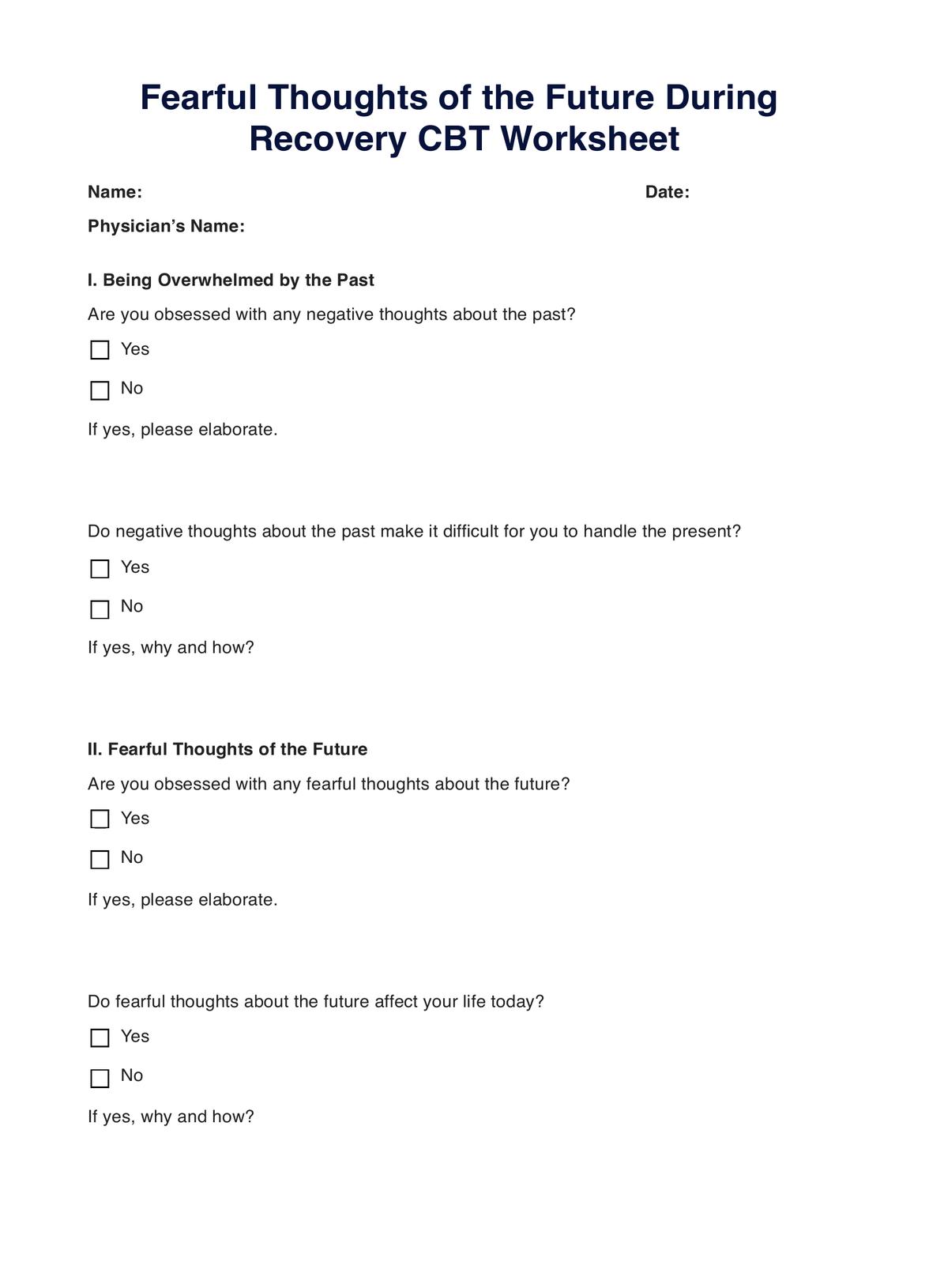
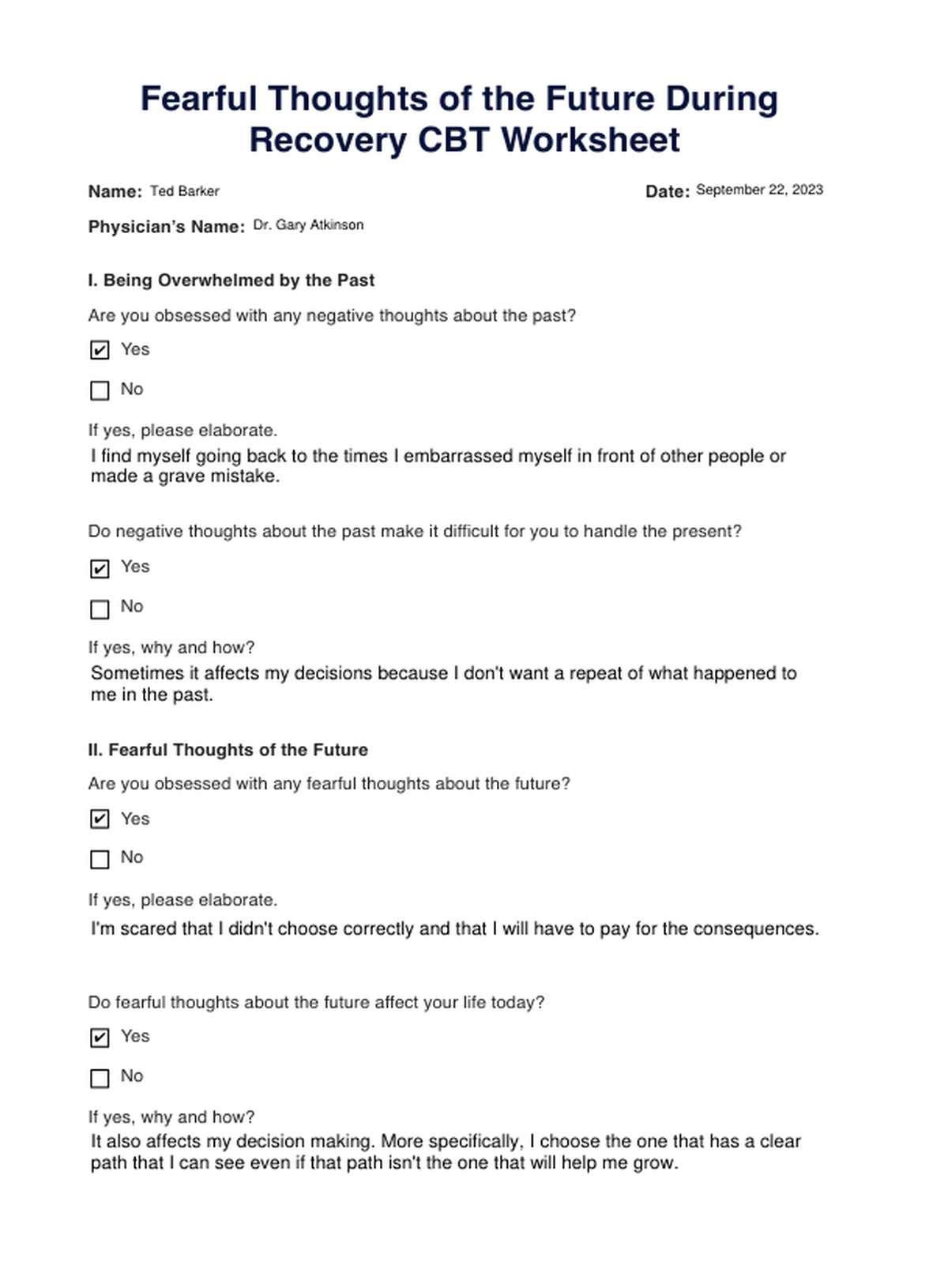















-template.jpg)






